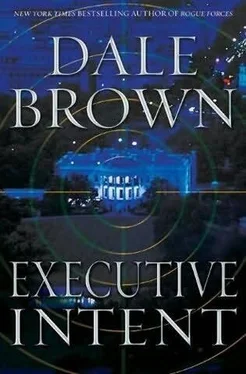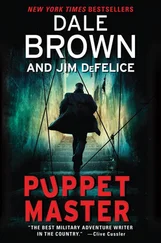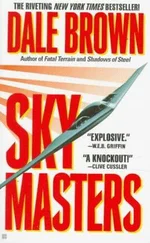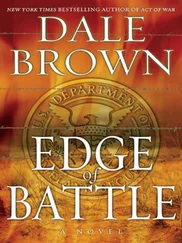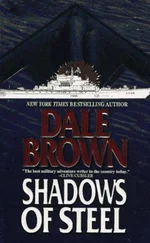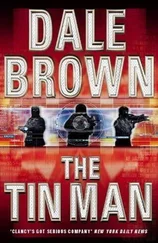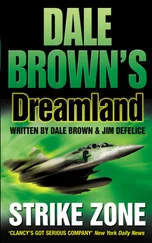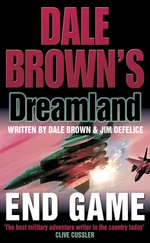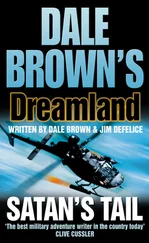“Yes, Mr. Vice President,” Kordus said. He took a sip of coffee, then went on: “This will be our last update until the full staff update at six forty-five A.M., so we can all get at least a few hours’ rest as long as your deputies are fully briefed and in place. Who’s got the latest?”
“Right here, Walter, Mr. Vice President,” Secretary of Defense Miller Turner said. “In a nutshell, sir, we’re seeing a historic, tactically well-orchestrated, and a strategically globe-altering event: the first deployment of Chinese troops across its borders in large numbers since the Korean War, and one of the largest deployments of Chinese air and naval forces in the country’s long history. What we’re seeing, ladies and gentlemen, is the world’s largest standing army from the world’s most populous country doing what the world has feared for two millennia: breaking out of its borders and massing troops elsewhere on the planet.
“To summarize: The People’s Republic of China bombarded and then invaded the main airport and the area known as New Port in Mogadishu, the capital city of Somalia, in the Horn of Africa. The invasion began with air-and sea-launched cruise-missile attacks, followed by unguided gravity-bomb attacks from Chinese H-6 jet bombers and naval gun bombardment from Chinese warships that were part of the antipiracy task force. The bombardment was followed by a land invasion of Chinese marines who came ashore from the naval warships, and then followed by Chinese army regulars who came ashore aboard container vessels initially thought to be humanitarian relief supplies bound for Tanzania. The attacks were specifically planned and executed for maximum destruction and body count.”
“Do we know where those bombers came from?” Phoenix asked. “Did they fly all the way from China?”
“We don’t yet know, sir,” Turner replied. He checked his notes, then said, “The Chinese H-6 is China ’s only long-range bomber. They have only a hundred twenty of them. Unrefueled, they have a range of only one thousand miles. About sixty were updated with aerial refueling probes, and approximately thirty were converted to aerial refueling tankers, so we’re assuming that half of all their airrefuelable bombers and air-refueling tankers were used in this raid. If they are, they could have come all the way from mainland China.”
“The Chiefs think that’s highly unlikely, sir,” General Taylor J. Bain, chairman of the Joint Chiefs of Staff, remarked. “ China has the world’s largest air force, but seventy to eighty percent of their planes are old and outdated. General Huffman says China has very little experience with aerial refueling, especially the H-6s. They’re developing more of a capability to refuel tactical jets and carrier-based fighters, but the big bombers were thought to be all but obsolete.”
“Unless you can explain how a plane with only one thousand miles’ range made it a quarter of the way around the planet without air refueling, I’d say your information was totally inaccurate, General,” Phoenix said with undisguised irritation. Bain likewise did not try to hide his displeasure at Phoenix ’s remark. He glanced at Walter Kordus, making an unspoken request, and the president’s chief of staff picked up his telephone.
The vice president waved a hand, then massaged his temples. “I’m sorry, General, I apologize,” he said wearily. “I’m tired. It’s been a really long day.” Bain nodded, once and perfunctorily, and said nothing. The vice president turned to the rest of those in the Situation Room. “Ladies and gentlemen, as Secretary Turner said, what we’re seeing is something completely unexpected and unprecedented. Everything we thought we knew about China is wrong, do you understand? Everything we’ve assumed about their capabilities, strategic interests, methodology, and order of battle has to be reevaluated, and fast. It looks to me like we’re going to have to throw out all the game plans regarding China and make up new ones-every week if necessary.”
“That’s exactly what we intend to do, sir,” Carlyle said after he hung up the phone. “But China has always been a secretive, closed, and one-way society-they take all the data we care to give them, and give us very little in return. It’s been like that in the best of years.” Carlyle checked the laptop computer display before him when the terminal beeped, then typed commands into the keyboard. “You have something to contribute here, General Raydon?”
“Yes, sir,” Kai Raydon replied from Armstrong Space Station. “Display number six.” One of the displays on the wall-size array of computer monitors turned dark, followed a moment later by a satellite image of an airfield with a very long single runway. “This is Rajanpur Northwest Airfield, about forty miles northwest of Khanpur in central Pakistan. It happens to have Pakistan ’s longest runway, twelve thousand five hundred feet long. It was built to accommodate Ilyushin-76 airborne early-warning radar aircraft and air-refueling tankers purchased from Ukraine, as well as H-6 bombers purchased from China. Pakistan received four of the AWACS radar planes and twelve tankers, but the sale of H-6s was blocked by the United States after Pakistan ’s nuclear tests in 1998. The Il-76s were later moved to other bases, and Rajanpur Northwest became a reserve forces base and was largely abandoned. This photo was taken about a year ago.”
The photo changed, this time to the same airfield but with several rows of large aircraft parked on the southeast and northeast sides of the runway. “This is Rajanpur four hours ago,” Raydon went on. “We count twelve H-6 bombers, four H-6 tankers, one Il-76 AWACS, several large transports, and some fighter jets. The airfield is choked with planes and personnel. We haven’t been able to identify any personnel or get any other information, but my guess is that this is a massive Chinese air deployment.”
“Our buddies in Pakistan looking out for us…again,” Phoenix commented. “I think Pakistan ’s friendliness toward the United States is as much fiction as the one about China not training for air refueling with its long-range bombers.”
“I don’t see this necessarily as a betrayal, Mr. Vice President,” the president’s national security adviser, Conrad Carlyle, said. “ Pakistan supporting China ’s efforts to shut down the Somali pirates? We should be thanking them.”
“It’s yet to be proven if that’s what China is up to,” Phoenix said. “We’re friends with China, or at least we’re supposed to be friends-why didn’t they advise us first before this operation? And we’re allies with Pakistan -why didn’t they advise us they were going to support China like this?”
“ Pakistan has all but closed our embassy in Islamabad,” Kordus said, “because of that space attack. We’re going to have to do some major sucking up to get them to trust us again.”
“No one is going to be sucking up to anyone, especially the United States of America, and especially not to Pakistan,” Phoenix retorted. “If it wasn’t for that space attack, we’d probably be watching a nuclear war on the subcontinent right now. Remember that.” He paused for a moment, then spoke: “What’s the latest on your incident up there, General Raydon?”
“The investigation is ongoing, Mr. Vice President,” Kai replied. “We saw absolutely no faults at all when we powered the interceptor garage up. It just…blew.”
“Any guesses?”
“Sir, the system that failed previously was the Trinity interceptor safe-arm circuit, which guarantees that the rocket motors in the interceptors are safe until the system is armed from here in the station, or until the self-protection systems detect a possible incoming threat,” Kai said. “We had the entire satellite shut down except for the maneuvering system, and two circuit boards in that subsystem were just replaced. If the boards were bad or the wrong boards replaced, a faulty safe-arm circuit would have closed the motor ignition circuit. When the garage was powered up, the safe circuit fault could have been interpreted as an arm command, and the motor ignition command set off one of the booster motors. But as I said, we had no indications of any faults after powering up the satellite. We’re checking all systems right now, and we still haven’t found anything.”
Читать дальше
